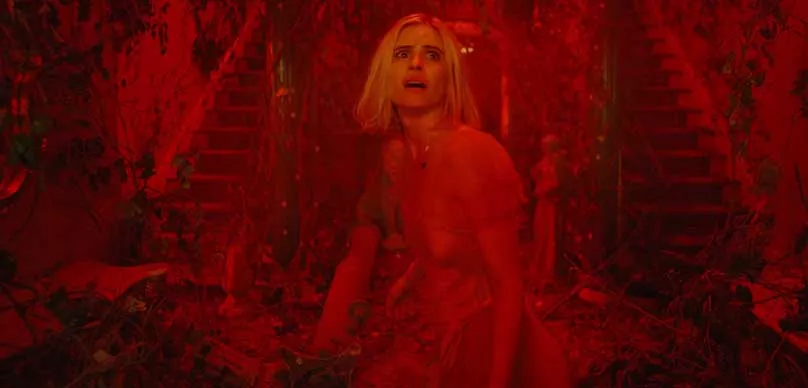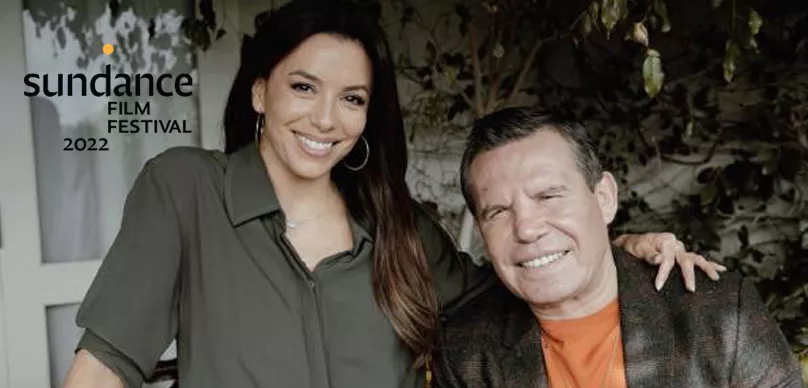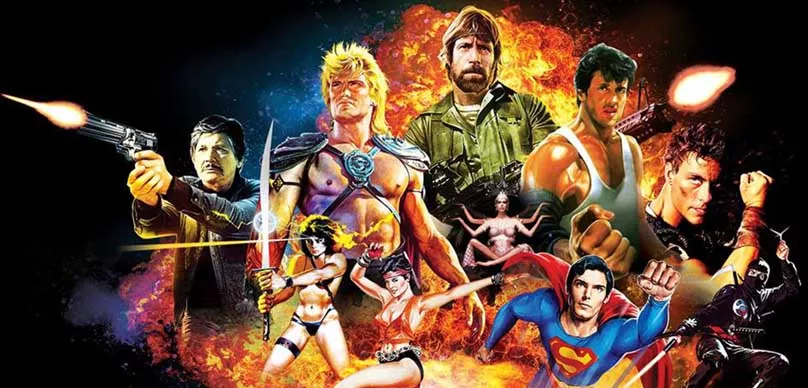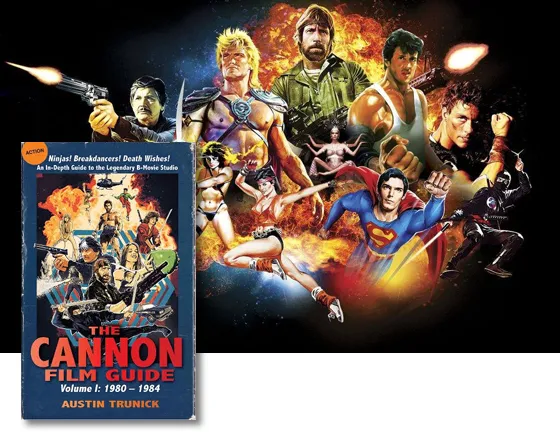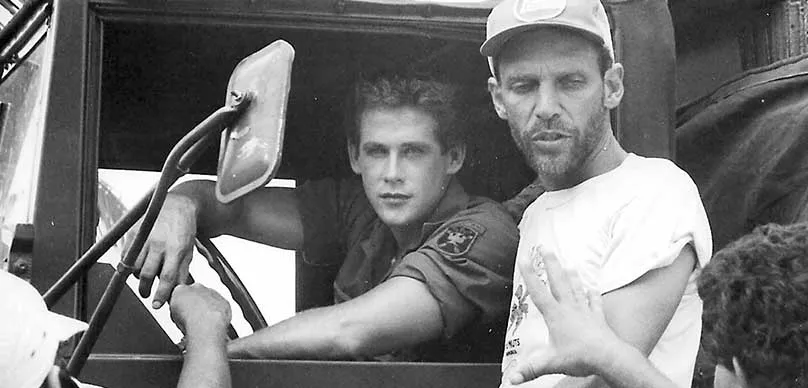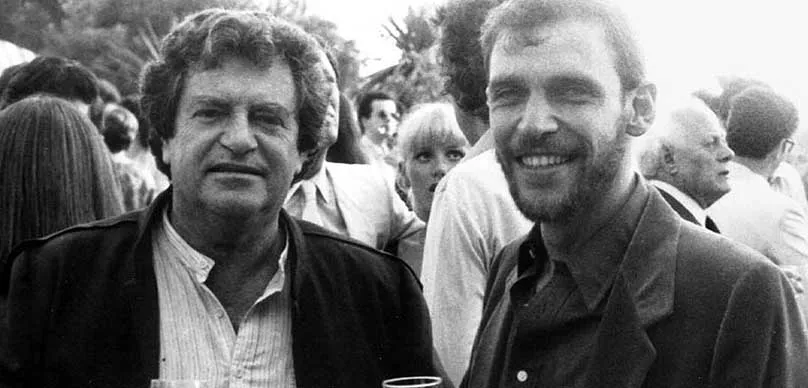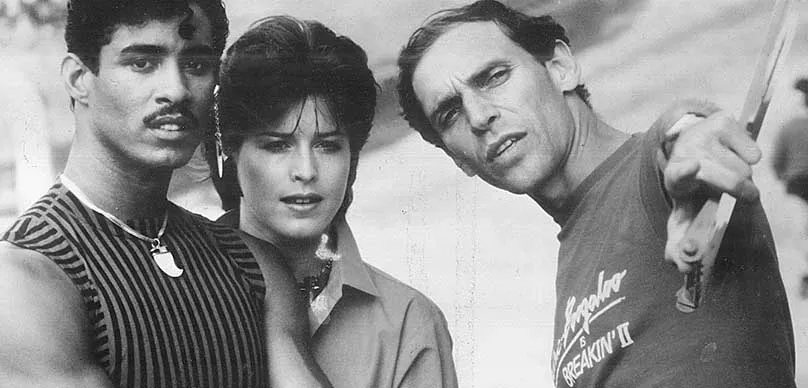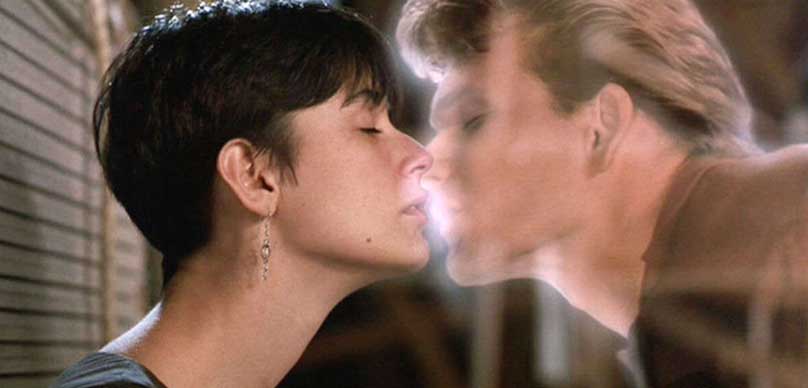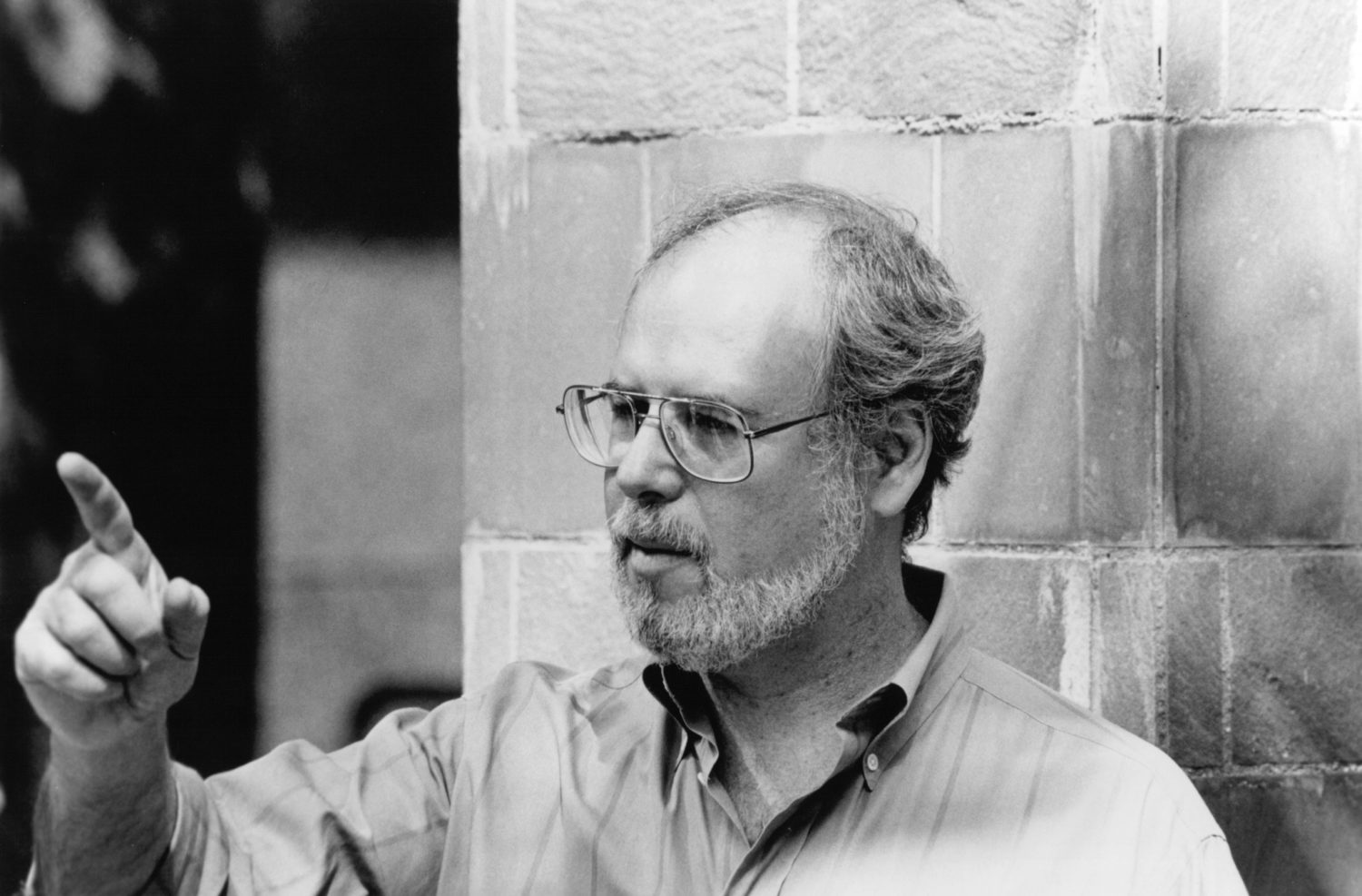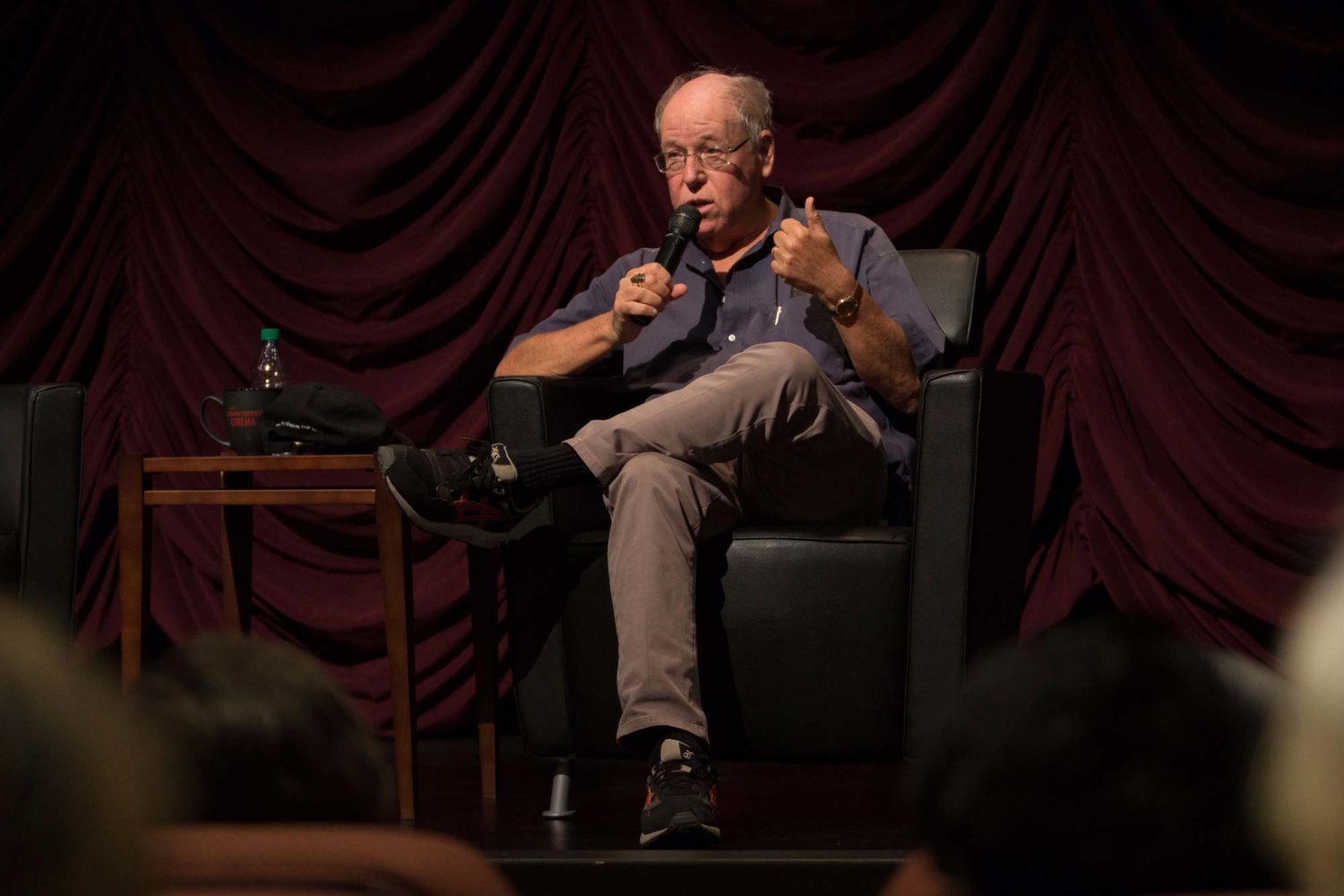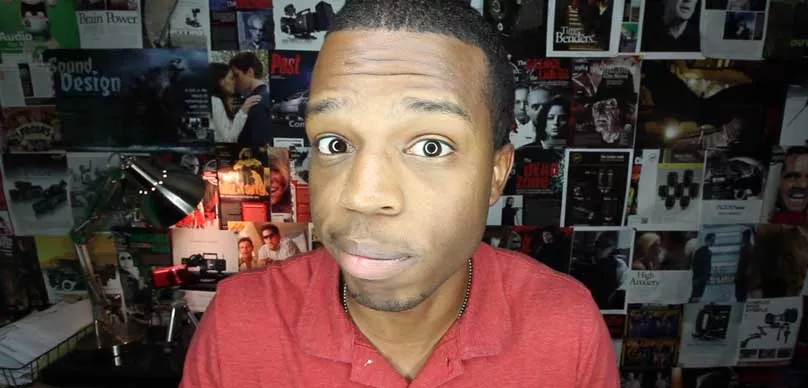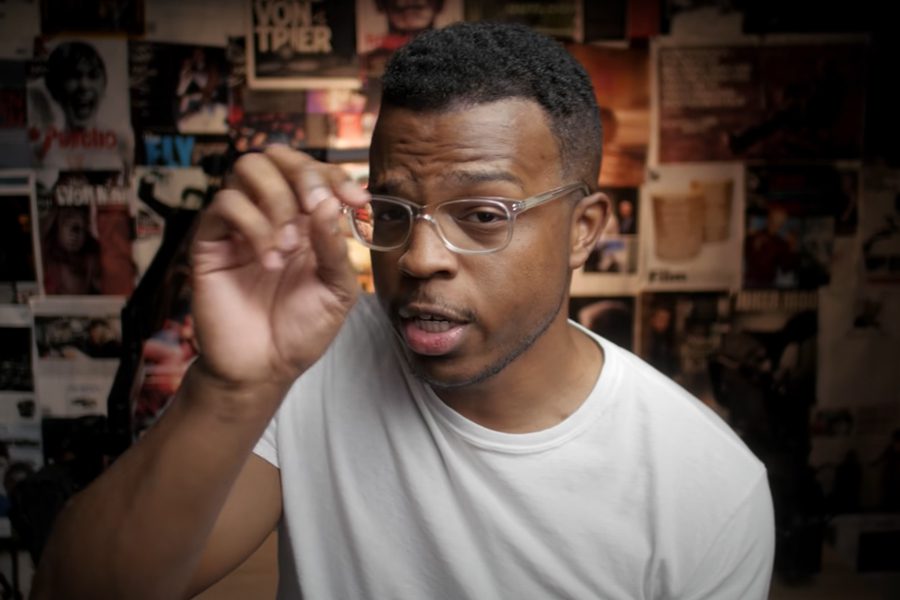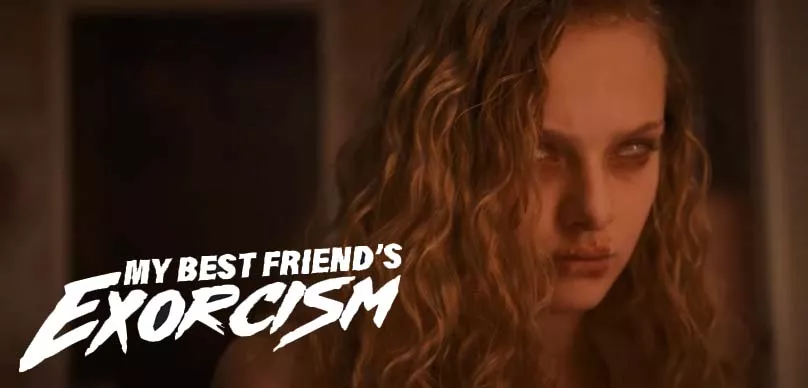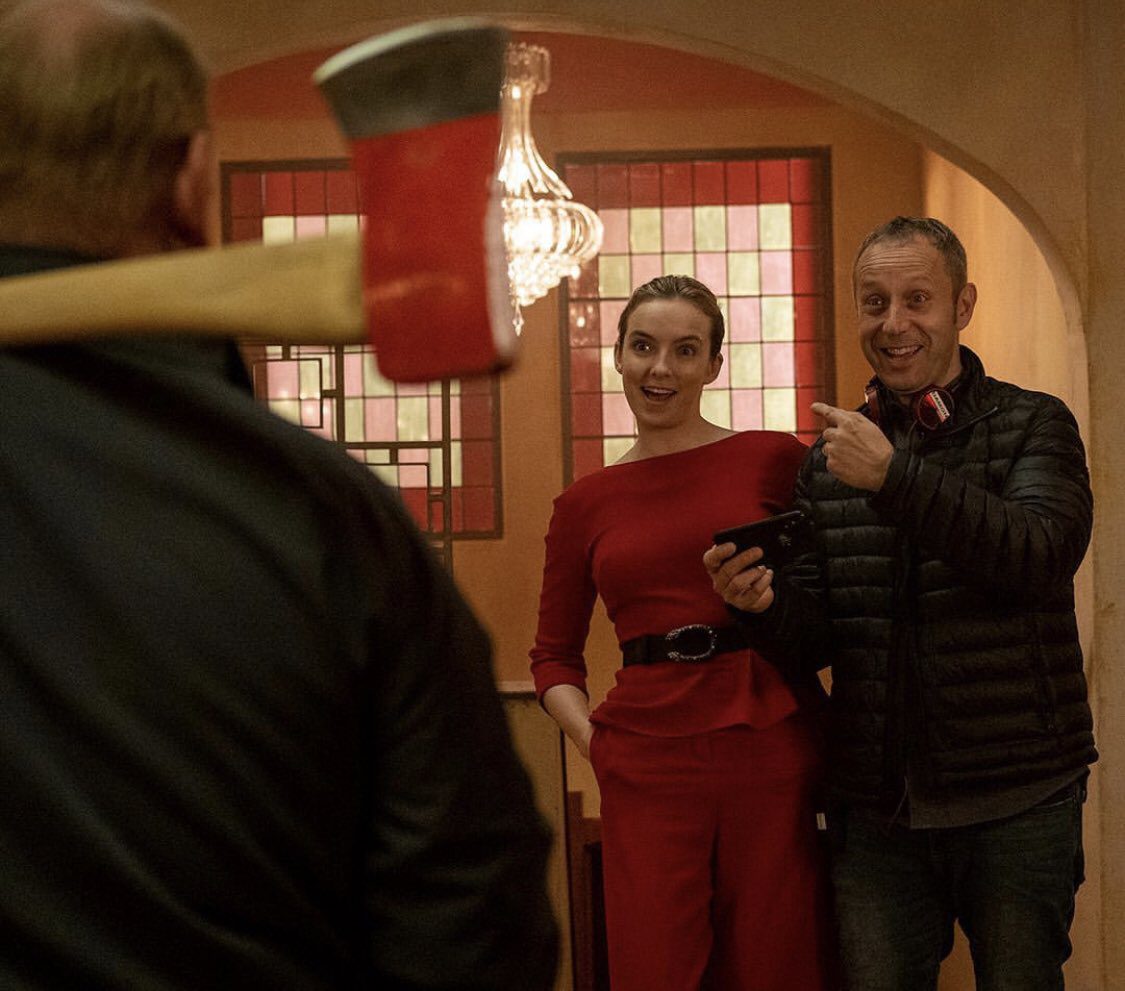I read an article the other day about a filmmaker who spent the better part of a decade trying to finish a movie due to unforeseen circumstances and spiral depression. I was immediately intrigued because that’s part of the package that this line of work comes with that we don’t talk about as much.
So, I brought on the award-winning filmmaker and writer Lucas McNelly to talk about his movie, Up Country, and how depression affects his life and creativity. Lucas McNelly has written and directed feel-good projects like Blanc de Blanc, A Year Without Rent, L’Attente, Gravida, Maine Noire, and Indies for Indies series. He currently works as Director of Films and Assistant to Marla Singer at Long Winter Soap Company.
While his interest was initially in sports broadcasting like basketball and baseball, he pivoted to filmmaking in his sophomore year of college after winning a students’ film festival by happenstance.
The production of his 2021 movie, Up Country, took almost a decade to complete. Lucas wrote and directed Upcountry— a true labor of time and passion because he came to the brink of losing this project.
The movie plot is about a group of friends from New York City who hires a guide to take them on a fishing trip deep in the woods of northern Maine. But, when the guide takes all their gear, they find themselves stranded in the middle of nowhere.
He goes in-depth about the process and all the curveballs he dealt with over the decade. Perseverance is one word I can use to describe Lucas’s story and the making of Upcountry, but you have to listen to be your own judge.
He has another upcoming project, Maine Noire; you can check it out on his website— you can find all the details in the show notes below.
Not to give too much away, but let’s dig into my interview with Lucas McNelly.
Right-click here to download the MP3
LINKS
- Lucas McNelly – IMDB
- Lucas McNelly – Official Site
- Website: Lucas McNelly films
SPONSORS
- Bulletproof Script Coverage– Get Your Screenplay Read by Hollywood Professionals
- Audible– Get a Free Screenwriting Audiobook
Alex Ferrari 0:08
I like to welcome the show Lucas McNelly. How you doing Lucas?
Lucas McNelly 0:14
Pretty good how are you?
Alex Ferrari 0:15
I'm good man. I'm good. Thank you so much for coming on the show I read an article in in Movie Maker about how you spent better part of a decade trying to get a movie finished and I we're going to definitely get into the weeds about the insanity of that because we're all insane because we're filmmakers because that comes along with the with the package. But before we even get to that part, how did you get started in the business? What made you get into this insanity?
Lucas McNelly 0:45
Yeah, well, because I didn't know any better. So I was not into film like at all when I was a kid, I was into sports, those big basketball baseball person. And I was gonna do sports broadcasting. And you know, be the next bob costas. So and then in college, my senior year of college, the student activities or whoever said, Hey, we're going to try to do a film festival this year. And I thought, well, that'll be fun. Let's try that. And so me and a buddy of mine just decided to make a film. And I'm like, How hard could it be? It turns out it's very hard. I didn't know how to use the camera. Like I shot most of it and like the very first day we're just I'm like, how do you even turn this thing on? Like couldn't get it on the tripod and then we ended up winning the thing. Nice so from that point, I was like, well, this is a lot of fun. I kind of got hooked on it.
Alex Ferrari 1:43
And then that's the and then of course a downward spiral ever since.
Lucas McNelly 1:47
Yeah, and that is where all the blame lies.
Alex Ferrari 1:51
That was that was the peak the one award Yeah, you know it's it's amazing. I got my award. Yeah, exactly right that you get that one award at this film festival. You're like, I think I can go with this. And then you're just like, wait a minute, it's not that easy.
Lucas McNelly 2:08
At the bottom, Beginner's luck, I think.
Alex Ferrari 2:11
Yeah, good timing. Good timing. So then tell me man What? Tell me about upcountry man your film upcountry? Your? The journey of it? Why took 10 years to make? How did you keep? There's so many questions. So tell me how it gets started in the first place?
Lucas McNelly 2:26
Well, depression is a hell of a drug. So that's the short version of it. The long version is so I was I was living in Pennsylvania for a while. And then I ended up after a breakup, I was back in Maine. And I kind of needed to do something. So I was like, well, we have this hunting camp in the woods. And crowdfunding just started. And I was like, well I'll crowdfund a movie. And we'll just make we'll just shoot a movie. And so that was the easy part. We crowdfunded four grand and I got people from around the country to come up with basically the four grand was the plane tickets and food. And we shot it in a week we shot seven days in the woods sunup to sundown, track out into the, into the woods, and you know, just shoot all day. And then we, I caught it. And everything was sort of going to plan I did a year without rent. After that, and I edited I finished editing it to picture to picture lock on a year without rent. And then we were sort of chipping away at the sound mix in and it's you know, it's a $4,000 film, so it's when people have time to do it. And then we were in a festival in I want to say 2012 or 2013. And we got bumped. And I was getting playing, I was literally getting plane tickets, to go to Philly to sound mix it and to like, you know, do like four hard days of sound mixing, and it got bumped and I was like, Well, I guess we don't necessarily need to do this right now. And the sound editors like, well, I can get this paid gig. So do you want to just push a couple weeks in a couple weeks, Pam a couple more weeks. And then it was sort of we chip away at it over email. And then and it just sort of got away from me you know, it's like that thing that just sort of becomes you know, the the gaps become longer in trying to get the thing done and without that fire of the thing and it just sort of like snowballed on me. And before I knew it, it was like two years have passed. And
Alex Ferrari 4:39
so you had a chat said this is not a film you shot over 10 years you had shot though, are you in the can.
Lucas McNelly 4:46
It was it can it was fine cut. We've had a score, we just needed the sound mix and I just couldn't get and then you know it's just sort of you look up and like two years have passed and then You know, your life sort of takes over on you. And it just became this thing, I just sort of fell in this depression about it. And I couldn't get it fixed. And then, like, my computer died, and I went, and I lost Final Cut seven. And I wasn't sure I was gonna be able to even like revive it, and then it just like, it just, it just became the thing in my head, you know,
Alex Ferrari 5:20
so so. So it's kind of like the shining, but you weren't in the lodge. So, but so you mean to tell me that and then your computer failed. So you had no backups of the thing? And you couldn't get final?
Lucas McNelly 5:34
Yeah, I had, I couldn't get Final Cut seven back. And then it just became a thing where, like, I was afraid I had lost the film. Yeah, you know, so But I, but I couldn't. It was a little bit of that, like strangers cat, you know, like, as long as I didn't know for sure that I had lost the film, The film was not dead. You know, but the minute I was like, if I look that, then I might be dead. And then I don't know what to do about that. And so it just like, it just threw me into like this really deep funk, creatively, and I just couldn't do anything. Like I was just trapped by it. And it sounds really dumb in retrospect, but a lot of depression sounds really dumb in retrospect. No, you know, you're just like, just like, I just couldn't get out of bed. And you're like, How the fuck? Could you just not get out of bed? Like, just get out of bed?
Alex Ferrari 6:26
Yeah, I mean, I'm the outside looking in. I mean, when you're depressed, it's hard from somebody out looking outside to understand what the depressed person is going through, and what's triggering them inside. Because I've been there. We've all been there and at certain different levels, as well. But
Lucas McNelly 6:40
I just couldn't like face the idea of like having to tell everybody that the film was gone. Wait,
Alex Ferrari 6:44
that's the thing I was going to tell you. Like, what did your actors think like me? I'm because actors are like, I'm waiting for this. Yeah, they had.
Lucas McNelly 6:52
They had gotten already gotten clips for the reels. And that's about probably all they did. Yeah, they were like, I think they just sort of stopped asking. And people would ask, and I would just I just didn't know what to say. So I would just sort of change the subject.
Alex Ferrari 7:07
So you would literally you literally spiraled? Yeah, I totally titled you spiral, getting deeper and deeper and deeper into this depression. And which kind of paralyzed you from moving forward audibly.
Lucas McNelly 7:20
Yeah, creatively, yeah, yeah. And then like, in that time, I bought a house, I got married, I had a kid. So I was really busy. Gray. So that was sort of the excuse, I guess, you know,
Alex Ferrari 7:31
but let me ask you a question. So because I couldn't write? I did I've been there. Trust me. I mean, I haven't I haven't had a feature. I haven't gone through your steps. But I've done through my own steps. Where your sisters this depression? How did this? How did your depression creatively affect the rest of your life? Because I know for me, I was I was an angry and bitter dude walking around when I couldn't get certain things done, or I was a year or two. You know, I wrote a whole book about my first experience, you know, making movies making a movie for the mob that destroyed me for three years. Like I just, I literally hit in a garage sorting comic books. Because I just was was terror. I didn't I didn't pick up a camera for three years after that. So I get it. So how did that affect the other?
Lucas McNelly 8:14
So like, it's, it becomes three years, like just like,
Alex Ferrari 8:17
oh, instantly, you're like, you'll be like, wait a minute, did a year just pass me the two years just pass? And you get busy doing other things? But, you know, how did how did that affect the rest of your life? Because I mean, as a filmmaker, and as an artist, it's a very big part of our existence, right? So how did that affect the other parts of your life?
Lucas McNelly 8:37
Well, I'm from New England. So I'm an angry and bitter dude. Anyway. So the starting point, you know, that's your baseline baseline, good baseline. So people didn't really notice. They're like, Oh, he's just in a bad mood today. Everything felt like, for a long stretch there for probably three or four years, I was like, Well, I guess I'm just done, I guess my thumb Cooper done. You know, it just felt like that to me. And I sort of resigned myself to that fact, in a lot of ways. And I like really missed it. But I was just like, well, I guess I'll just pour this energy into other stuff. And so I got into running a lot. And I started organizing road races, which sort of felt like directing a movie. It's like the easiest directing of a movie you can possibly do. It's like, if Imagine if you had if you're directing a movie, but like, you stopped at lunch on the first day, that's directing a road race, like, well, we're done. All right, great. There's no post production. So I mean, I was able to sort of channel the creative stuff into other places. I couldn't write like, it's sort of blocked that part of my creative process, like I would try to write like, I tried to work on another script. And like, my brain wouldn't let me do it. If that makes sense.
Alex Ferrari 9:48
It makes it makes all the sense in the world. And what I find fascinating the concept of what you said, or what you just said was the funneling that energy into other things where you imagine Anyways, in the end, I'm talking about this from my point of view, you trick yourself into you like, well, I'm being creative. I'm doing other things, but they're not filmmaking and maybe I'm making something. I'm building websites or I'm running or I'm working out or, you know, sorting comic
Lucas McNelly 10:15
books. Yeah, sorting,
Alex Ferrari 10:16
sorting comic books. There's art here somewhere. I, you know, it's like,
Lucas McNelly 10:22
I've created the new Dewey Decimal System. Exactly.
Alex Ferrari 10:24
It's amazing. So you start funneling in, it's kind of like a hack just to survive in so many ways. Is that fair to say?
Lucas McNelly 10:32
Yeah, cuz otherwise, you're just gonna like spiral deeper into depression or alcoholism or both. And I already have alcoholism and depression. So I couldn't go any further into that. And I don't want to start doing drugs. So you know, that's what you have to do is you sort of have to figure out a hack. Or you'll go insane and make the people around you miserable.
Alex Ferrari 10:51
Yeah. And I'm, I'm so blessed that I didn't I've never drank I've tried, and I couldn't because I know I would have an alcohol I would be an alcoholic during the time to do Oh my God, I would have just I know I would have but I, I literally tried and I couldn't. So I'm very glad that because if not, I'm lucky. I'm very lucky in that sense, because I mean, heroine but who doesn't? But But no, but joking aside, it's it's really interesting how you cope as a creative especially as a filmmaker when, I mean, I can't, I can't even comprehend shooting a movie, editing the movie. And it being lost to you. Like, yeah,
Lucas McNelly 11:31
it was a terrifying idea. It's, it's, it's
Alex Ferrari 11:34
the worst nightmare of any filmmaker, I
Lucas McNelly 11:35
think. Yeah. And it was, and it was hard to even think like, like, how do you even come to grips with that? Like, even putting it wrapping your head around? What do you even do after that? You know, like, like, do you and then you start thinking like, well, maybe I can, like, if it's gone, maybe the files I knew the files weren't all gone. Like I knew worst case scenario, that the DP Dustin Perlman, he had the original files in LA.
Alex Ferrari 12:05
And you could, you could rebuild the whole thing. If you had
Lucas McNelly 12:07
I could have if I had if I had to, I could rebuild the whole thing. But oh, my god.
Alex Ferrari 12:15
Oh, no, no, no. Oh, my God. Oh, my God, I'm having to do that. My, my, my, my anus is buffering is not my film. But I've had
Lucas McNelly 12:26
I got a I got a kid, I told him that I don't have time to re edit.
Alex Ferrari 12:31
And that's the thing too, like, as you get older, and things that you put up with in your 20s, you're not putting up with your 30s and 40s.
Lucas McNelly 12:36
Yeah, if you're 22. And you say to somebody, you just got to redo edit the whole film, they'd be like, Okay,
Alex Ferrari 12:40
I got nothing else going on. Yeah. I got nothing else to do. Why not? No, it's absolutely true. But I think there's so many times that we as filmmakers have to go through these these rough patches. Mind you, your rough patch was it's an extreme. My rough patch was an extreme. You know, but I mean, I think the one of the things that you said that like finding a hack, finding a way to funnel your energy out, because that energy keeps coming. Yeah, it's there. Your need your want this, I call it the sickness, the sickness. Because once you get bitten by that bug, it's over. Like, you can't ever
Lucas McNelly 13:20
be a drone in a in a cubicle. Like No,
Alex Ferrari 13:24
you can't go You can't go work in Amazon spec warehouse like you. Yeah, it's something inside you that can't stop unless the artist thing. And and I've told people it can go dormant for decades. But it will always it will always raise its head in one way, shape, or form. So I love the idea that finding that hack finding something else that you can funnel that energy. And if this road is locked or closed to you right now, for whatever reason, you're focusing it on other things. And hopefully you can get that engine running enough that you can break through the barrier. How did you finally Why did you finally get through this dude, because it means so.
Lucas McNelly 14:02
Yep. So, oddly enough, it was the pandemic. So I didn't really get a pandemic break, everybody else got a pandemic break, but I didn't really get one. Because I have a day job and my wife and I have a soap business. And so soap was very helpful and important during especially the early days of the pandemic. So we were very busy. But I wasn't, you know, I couldn't go anywhere. There were no races to run. There was nothing else to do. And so I finally was just like, you know what? And I was like, Well, at minimum, probably everybody's home. So if we have to, if I email everybody, they got nothing else going on right now. So right? No one else. No one else is busy. I'm busy, but nobody else is busy. And so, you know, I like I think the first thing I did was I emailed Dustin. And he's like, Did this email get lost? When did you send this?
Alex Ferrari 14:55
like seven years ago?
Lucas McNelly 14:57
He's like, did you how slow is your email now? And so there were some jokes like that. And then, you know, I, I got something, I got the full file from him for the picture. And then I talked to the sound editor and I know this I've known the sound editor since college. So that was helpful in a way and that I wasn't like, you know, it's an old friend of mine. And everyone was like, Yeah, like Dustin found a copy of Final Cut seven in LA, his girlfriend happened to have one on an old computer. And Dave, the sound editor, he was able to bring everything up on an old system, and got everything transferred to the new system. And then just for like, eight or nine months, we just sort of chipped away at it, because we had more time to work everything else to do. Yeah. And I'm like, well, we got to get this done, man. He's like, Yeah, he's like, I agree. It's like, it had been looming in his head. I think too. And everybody said, Yeah, it was. Yeah. And so we finally got it. And I just want to say to any filmmakers, Listen, do not sound mix your film over email. Just do not do it. It's a terrible idea. That's all it takes for ever, cuz you're just making a list. You know, you're like, Okay, so four minutes and 13 seconds. Can we bring this up a little? And then you're like, No, not that much.
Alex Ferrari 16:22
Okay, find a happy medium, like, Oh, yeah. Oh, God.
Lucas McNelly 16:26
It was such a such a pain in the ass. So, um, yes, then we just sort of ended up getting it done over the course of like, 2020 and finished it right before Christmas. And then I released it, I sent all of the backers on Christmas, a Christmas present of the movie. The backer, there was a lot of like, Whoa, where did this come from? Like, cuz I kept it really quiet the whole time. Because I was like, first of all, I can't if I go on Twitter and say, Hey, guys, guess what? It is doesn't get finished. You're done. You're done. Yeah, I'm just done. Like, I just shut it all down. I'm just gonna log off the internet forever. So I waited until it was like, completed, completed, completed. And then just Surprise, surprise, Christmas present to all the Kickstarter backers, which was kind of fun. That's like, Yeah,
Alex Ferrari 17:17
can you imagine after 10 years, you get it? You get your, your reward?
Lucas McNelly 17:21
Yeah. It was a lot of like, I just kept getting these emails like, whoa, whoa, like, Wow, good for you, man. Like you. You think like in your head during this whole depression thing. You're like, Oh, these people like, the Kickstarter backers are mad at you. And like, you know, 99% of them. They're like, I gave you 10 bucks. So you should like just the fact that you shot the film, and show something. Yeah. is enough. Like that's, you know, I'm not really doing it for, you know, the film itself. I'm doing it for you. Or because I liked the idea or whatever. Yeah. So no one was mad. Like, they were all just, I think really happy that it was done. I
Alex Ferrari 18:07
gotta ask you, what are the actors say?
Lucas McNelly 18:10
The actors, they were pretty excited. They were. Yeah, they were pretty. They were pretty sight.
Alex Ferrari 18:16
They're finally releasing a movie 10 years ago, so they look a little bit different.
Lucas McNelly 18:20
They do a little bit different. There. Yeah. So God, there was a lot of performances in it. You
Alex Ferrari 18:26
want to hear? I'll do you one better as far as a movie that took so long to just do to just date to actually get out. There is a movie that exists about a killer grizzly bear. That stars George Clooney, Charlie Sheen. And Laura Dern. Okay, the 80s. Wow. And it also had another actor. Oh, the guy from Indiana Jones, the end from Lord of the Rings, the guy who played the big Hobbit. But he was the guy. You know, I'm talking about right? I forgot his name. He's the he's the Middle Eastern guy from Indiana Jones. He's like the good guy. He's like, you're always helping Indian, all his films. And he's the he's like the star of it. At the time. It had never gotten to the big name, and then never ever got released. And some like I was talking to somebody on the show, and they're like, yeah, we I was talking to Charlie. Yeah, I remember that. I had I had somebody who ran Charlie Sheen's a production company for three years. And he goes yeah, Charlie used to always tell me that, that he did that he did a movie with George Clooney Lord during that never got released and we're like what? And 20 years later it's released it's out there now. I think it's killer Grizzly or something like anyone listening. I'm sure it's fantastic. And they actually saw that trailer for it. The The, the the bear is it's like a 15 foot bear. 1520 1520 foot 30 foot bear. It's like an insane thing, but it so bad. It's
Lucas McNelly 20:00
a beaut, yeah.
Alex Ferrari 20:02
Oh my god, Satan, like the bear. NASA epi, not so much, but they did put the names of George Clooney, Charlie Sheen and Laura Dern front and center poster
Lucas McNelly 20:16
is a little different.
Alex Ferrari 20:19
I just yeah, so so don't feel too bad. There's other movies that are taking longer to finish right? Now that when you actually decided, because look, the pandemic help helped all of us reevaluate our lives for better. Yes.
Lucas McNelly 20:35
It was any I was kind of a perfect opportunity for that. Yeah. Because
Alex Ferrari 20:39
everybody I mean, I did everybody did just like what, what am I doing with my life? Like, there's so much of that. So when you finally just said, Did you tell your wife did you just like I'm gonna I'm gonna finish the movie.
Lucas McNelly 20:52
Yeah, well, she didn't know me when the movie was like, remade it.
Alex Ferrari 20:55
It was Miss. Oh, it was a mythical thing. Like Yeah, yeah, sure.
Lucas McNelly 20:58
Okay, I but yeah, okay. You're a filmmaker? Sure. Whatever, man. Yeah, I was like, I sort of told her and she's like, Okay, and then I don't think she didn't watch it until it was done. Right? So and then she's like, Oh, that was better than I thought was gonna be
Alex Ferrari 21:15
it's kind of like what my wife says to when she watches my movies. Yeah, I bet I bet she's not in the business so that's why Yeah, that's that's like that's not bad about pretty good. So um, so when you finally broke through, and you said hell with it, I'm gonna finish this and you go through this laborious task of rebuild did you have to rebuild it? Or you were able to
Lucas McNelly 21:38
No, I didn't have to rebuild it. You brought it back up you brought it back up through Finally we were able to revive it. Now Okay, brought it back up adults and we're clear.
Alex Ferrari 21:48
Man, but you know, the thing is, it
Lucas McNelly 21:52
took some doing to revive it. But no, it wasn't just as simple as opening the file.
Alex Ferrari 21:57
No, because I mean, I have I you know, I I was a Final Cut seven hold out for a long time. And some of my first I think my first feature was done. Nope. My first my other features were done in resolve. But all my shorts and all the big stuff I did before were all Final Cut seven. So I have Final Cut seven projects that I couldn't rebuild if I tried. Yeah, like I'd have to like literally, oh my god, it'd be immense. But it just said I can't it scares me to even think about that. I would I honestly would just I would honestly just do a cut by cut redo. Like I would take the rock the rough cut, or the con and then just match cut it.
Lucas McNelly 22:35
Oh, yeah, I could have probably done that, too. I would have just done that. But I wouldn't be changing everything. I didn't know I would have. But yeah, I mean like other year.
Alex Ferrari 22:45
Oh, Jesus Christ. But so alright, so it took you 10 years to get to this point. Were there ever any almost anyone like you went down the road and you're like, screw it. I'm out. I can't do this.
Lucas McNelly 23:01
Not really, I don't. There were a couple there were some days where I sort of looked at the drive. And you know, sort of stared down like a Clint Eastwood movie.
Alex Ferrari 23:10
But I got to ask. Okay, so did it just become a Boogeyman for you at this point?
Lucas McNelly 23:14
Yeah, yeah, it was definitely that it was just this thing that was like looming. It was like this massive thing on my to do list that I couldn't
Alex Ferrari 23:23
get you in. I'm digging into this because I want people to hear and understand how paralyzing that is. Yeah. For me, it was writing the book about that horrible time, almost making a movie for the mob. Like it took me forever, because I didn't want to go back there. Yeah, it's like this whole, like, and I would just stare at the, at the notes and the piles of research that laid out just like, I don't want to go back there. And it's, it's paralyzing. And it took me 17 years to write that book. Wow. Because I just, I didn't want to go back there. I just yeah, I literally didn't want to go back to
Lucas McNelly 23:59
it. And it takes like so much energy till any part of this process. And so to think that any of it was lost is just like, what you know, it's just hard to like process.
Alex Ferrari 24:12
You can't process it at all. So that so so you got it done. What did what did you when you put it out? Did you get distributed
Lucas McNelly 24:22
and how it's right now we're waiting to? We're trying to Okay, I like oh, everybody got a festival natural festival run. So, you know, the least I can do? At least at least a festival run and then I mean, it's a $4,000 Kickstarter movie, so it's not exactly going to get picked up by a 24. I don't have any delusions of grandeur about that. But I mean, if they want to email me, then
Alex Ferrari 24:51
that's great. If a 24 is listening, I'm hoping
Lucas McNelly 24:54
I'm easy to find. Um, yeah, so we'll do the festival run and then I'm playing I assume I'll end up self distributing it and you know VOD it and probably it'll end up on prime and all the other places.
Alex Ferrari 25:07
Yeah, I mean, for me, it's a $4,000. feature.
Lucas McNelly 25:10
Kickstarter movie. Yeah, it's and it's in the black still so well, I mean, I think it is like $4 left in the budget, something like that. And so every time I submit to a festival, I go, Hey, I do the waiver thing. You know, I try to get the waiver and like, Oh, we don't do waivers. I'm like, I have four bucks left in the budget that is moving man. I'm not I'm not going
Alex Ferrari 25:28
to 10 years to make it can ya? Can
Lucas McNelly 25:31
there's no, I'm not going into the red for this. Not for your film festival. Just because you have haven't figured out a good model to stay in business. And you need my submission fees to stay, you know, pay for your Stella tois. Yeah, yeah, that's your problem.
Alex Ferrari 25:45
That's not my problem. Problem. So I said, By the way, did once this once you broke through this damn, did you finally the creative juices start flowing again?
Lucas McNelly 25:55
Yeah, I wrote a script pretty quickly. I wrote a script about the pandemic, actually, but it's not like a zoom movie. It's not. It's actually
Alex Ferrari 26:03
please don't please don't do that. Yeah, no, God.
Lucas McNelly 26:07
No, it's actually an idea. I came up with yours. Like, probably nine years ago, it was this idea I came up with, and I couldn't, I couldn't ever figure out how to crack it. And the pandemic actually solved like three plot problems. And I was like, oh, it works now. And it's sort of like so it's we've moved one of those movies were like, the pandemics in the background. And it just sort of cleans up some stuff. But like stuff that like would prevent the movie from making sense where you'd be like two minutes and you go, Wait a minute, this doesn't work. So I wrote that. And then I was trying to get that made. And then I sort of, it's like a roadtrip movie. And I was like, I don't know that I really want to be driving across the country right now with a production crew. Seems like a bad idea. So then I wrote main Noir. I wrote in like, 19 days. And we're Yeah, and we just crowdfunded that Yeah, like it came back really quickly. It was like it was like the dam broke you know,
Alex Ferrari 27:09
and all that and you were stagnant for almost a decade. Isn't that insane? Yeah. is weird it's a weird it's
Lucas McNelly 27:15
like hard to even like like looking back on it. It just seems insane. Yeah. Is that kind of the best way to you it doesn't diminish mental health or anything, but it just is crazy.
Alex Ferrari 27:28
It doesn't it doesn't even mean it doesn't even seem that it was 10 years doesn't even seem that that was a real it seems like a dream almost.
Lucas McNelly 27:35
Yeah. Yeah. The only real like change is that I have a lot more gray hair than I did.
Alex Ferrari 27:41
A few things hurt more than they used to. Yeah, yeah. A lot more sore. More pains more eight. Yeah. Does anything does anything hurt when it rains? A lot
Lucas McNelly 27:53
of things actually.
Alex Ferrari 27:56
Oh, isn't getting older fun
Lucas McNelly 28:00
to hassle don't do it. If you're out there. 25 year old filmmakers
Alex Ferrari 28:04
just don't do it. Don't get older. It's not worth it don't get older. It's It's great. As a as someone
Lucas McNelly 28:11
writing it's better, but other than that, it's not worth it.
Alex Ferrari 28:13
I mean, the there's a few other things about good or about getting older, but generally speaking, the physical part it can, it can take the hole as they as they say,
Lucas McNelly 28:22
running helps, I can recommend that youth
Alex Ferrari 28:25
youth is wasted on the young.
Lucas McNelly 28:29
Yeah, I just watched my four year old he just falls asleep at like weird angles. And I'm like, how, how can you move the next day?
Alex Ferrari 28:36
Jesus, they bounce my mind just drop and fall and and like they watch TV on their neck, like upside down on his chair. And I'm like, What? What's wrong with you? How is that possible? It's insanity. Now you and you new film me nor you you crowdfunded that. From what I saw. It was pretty successful.
Lucas McNelly 28:59
Yeah, we raised 46,000 on seed and spark. So yeah, that was I sort of, I was listening to this came from part of where this came from was I was listening to Dan Mirvish on a podcast and because I have my podcast rule is like I subscribe to like 10 podcasts like a subscriber of yours and like couple other ones. So I was listening to him and he's like talking about how just like this idea of like picking the start date and just sort of pushing towards that date and sort of building the parachute as you jump out of the plane. And so that's kind of what we did and so I started writing the script and that was just like, okay, we're we'll shoot this in this window. We're actually not going to shoot it in that window because what happened was the crowdfunding campaign was success so successful that everyone sort of like at the end of it, we went, wait, okay, so we can rush. And we can shoot this in this very, very tight window here that we haven't fall. Yeah. Or we can do another session. After the script and do a real pre production, and she didn't spring because no one wants to shoot in Maine in the winter for some reason, I don't know why la people wasn't very pleased, please, la people are like, we don't really want to come to Maine in the winter necessarily. And I'm like, Why? I don't understand why
Alex Ferrari 30:16
it's, I always I always say that on the show. Like if you want to pitch to an actor go, okay, we need you in the winter in Buffalo. Like, yeah, that's or Hawaii. Which one would you rather go to?
Lucas McNelly 30:27
Yeah, part of our pitch was, well, you get to come to me and when it's nice, and they're like, Oh, that sounds fun. Um, yes, we're gonna shoot in the spring now. And
Alex Ferrari 30:36
that's beautiful in the spring mean is to Rockport a lot. Oh, yeah. That's right.
Lucas McNelly 30:41
That's right down the road.
Alex Ferrari 30:42
Yeah, it's during spring and summer is stunning there. People, people will go into spring and summer like, this is fantastic. This is heaven, we should move here. And then the winter.
Lucas McNelly 30:53
You would not believe how many people abandoned in New York City and Boston for houses they bought in Maine during the pandemic. And the rest of us. Were all just sitting there going, man, just wait for the winter, man. Oh, wait, is winter.
Alex Ferrari 31:08
Just like going to Toronto? Or Vancouver? You're like, Oh, this is beautiful. Oh my god, and then 10 nature hits. So Archer was a very successful campaign. Can you you actually do a little bit of campaign crowdfunding campaign? counseling, consulting?
Lucas McNelly 31:26
Yeah, I used to do it a lot. I don't really do anymore.
Alex Ferrari 31:29
But so when you did, how I mean, you take going back 10 years, the game has changed a bit since a little
Lucas McNelly 31:37
bit a little bit. Because it's still the same idea. It's the same general principle of you're trying to convince somebody to give you money for an idea you have right so all of those concepts are the same. I think the biggest change is that people you don't have to explain it to them really as much because when I first started you're like okay, so there's there's a website called kickstarter.com. Alright, you're not going to get your money back. You're not investing in this movie, you're just giving me You're giving me you're giving them money, they are giving you the promise of something like a T shirt or a DVD or a high five or something you know, and so you don't have to do that anymore. But so that helps grease the wheels but the downside is that the algorithms on all the social media networks are terrible now especially for something like that. So it's a lot harder to make a noise
Alex Ferrari 32:38
how do how did you make noise because 46,000 is a substantial amount for an independent film with no stars attached and in arguably you haven't been outputting a lot in the last decade so
Lucas McNelly 32:51
got the money saved up
Alex Ferrari 32:53
exactly they're all waiting waiting for Luca go there was a
Lucas McNelly 32:56
little bit of that, you know, there was a little bit of the Oh yeah, new Lucas McNally film. Hell yeah, I'm in. Um, it's kind of it's like the the really terrible version of like, when there was that big gap in Terrence Malik's career, and everyone was very excited for the for that first Malick film and like 30 years or whatever, it was, like the really terrible version of that. Right, then the next one I really like. Yeah, so it's just made a noise by kind of doing? Well, the reason I didn't, I stopped consulting, so I got tired of people not doing what I told them to do. And then the campaign failing, you know, and then like, why isn't it working? Like, why? Because you didn't do any of the things that I told you to do. So it's not working. So if you do them at work, so I just did all those things. And so that worked out pretty well.
Alex Ferrari 33:51
So all the things I tell people to do, I did, and it worked.
Lucas McNelly 33:54
And that who knew, um, you know, it's just basic, guerilla marketing stuff, it was thanking people and we made I made a surprise perk, where, because of movies about a woman who finds money hidden in her house, and so the surprise perk was that I would if I could find a picture of you quickly, this is why I didn't make an actual picture to people. I make $100 bill that had the website that you go to, to back the campaign, it would had mean noir calm on instead of the Federal Reserve thing. And then I would just email you this picture of your face on a bloody $100 bill. And people were like, Oh my gosh, that's great. And so then when you send them that they're like, I'm gonna post this on Facebook, on Facebook now. So you're able to break through the algorithm that way. thanking people is a good way to do it, you know, you're like, so one of my favorite crowdfunding moves is I had this long thread on Twitter and it would be like, backer number 55. is so and so. Then I would tag them. And it would be like so and so directed this film, or they run a bakery, or they do things and you just take like 30 seconds to like research this person, which is this, the polite thing to do if they're going to give you money is to like, figure out who they are. And sometimes you learn cool things like, Oh my gosh, this person won three games of jeopardy. That's so cool. And then you just say something about them to say, you know, this is how cool they are, thank you. And then you have a link to the campaign and so that people retweet that because you're thanking them, and you're took 10 seconds to learn something about them instead of just taking the money and, and moving on to the next person. And those are kind of the two easiest ways to do it.
Alex Ferrari 35:42
That's breaks through the algorithm because the algorithm is so big that break the
Lucas McNelly 35:45
algorithm. Yeah. And then I made like a little 32nd video that had the premise of the movie, and I had that on Twitter. And I would just kept encouraging people do retweet that because the more retweets something gets the like, more Twitter's algorithm is going to amplify it anyway. And so that got retweeted like 80 something times, and that helped a lot. And then, in order to keep it, I wanted to avoid the campaign being all like, give me money, give me money, give me money. So I recruited a bunch of like film writers to make videos about what their favorite thing about film noir is. And because I wanted to sort of celebrate those old 40s Noir, so it was really cool, like, dingy dirty ones, you know, and so I got like Matt Zoller, Seitz, and Odie, Henderson, and people like that. And they would make these cool videos about like, I love the dialogue and the classy dames, and all that, and they would shoot it in black and white. And then we would post those, and that would help get the word out. So just it's sort of a multi prong attack. Yeah. And then eventually, if you're persistent enough, the idea I think, isn't to necessarily get people to, on the first try, like you have, it has to become sort of an inevitability where they're just like, okay, okay, I've been watching this campaign for 15 days. Okay, I'm finally you got me, you want me over? And that's sometimes that's what it takes. Yeah, I always was gonna think your people are tired of listening to you, but they usually
Alex Ferrari 37:13
aren't. Yeah, and the thing is, with the, with the algorithms, man, Facebook is just horrible, terrible day, or you put a link to anything now like, you know, I have to get almost a quarter of a million followers and I get like, 150 people CFOs it's insanity.
Lucas McNelly 37:33
So one, one thing I did to work around that is I would have, so I had main noir calm, and that would redirect redirect directly to that will go directly to the campaign. So I would put that in imagery images. So you would see the webs, you would see the URL, but the algorithm wouldn't recognize it as a URL. And it was, you know, because it would just
Alex Ferrari 37:55
be like, It's me, it wasn't a link, it wasn't a link.
Lucas McNelly 37:59
Right. And it was enough, it was a short enough URL that you would remember it. So like, if I said you then like, oh, what was the URL? You go? Oh, I think it's, oh, it's main main noir? Yeah, yeah. It's not something weird like Bitly dot whatever. Right? You know, so and that that sort of helped
Alex Ferrari 38:17
as a as a redirecting, you just redirected it and using that URL,
Lucas McNelly 38:22
smart and then I get that again, just turn that into the cat to the website for the film when the films in front of
Alex Ferrari 38:27
it later it's finished. Now what is well, if I were to ask you, how do you correctly budget a crowdfunding campaign because that's a whole nother beast,
Lucas McNelly 38:36
it's all that I had only one perk that cost money to deliver interesting, and that was the DVD park at 100 bucks. And the rest of them were all digital. So those don't have cost. And so I just knew my $100 one I all I had to do is deliver a DVD. And I'm like, why would DVDs not going to cost that much to make? We're talking like three or four bucks, you know, if I'm buying them in bulk, so I'm like, well, that's plenty of a margin there. Right? And then just budget and then it's just budgeting the film. And even then I ended up my cast or anything, so I just sort of was kind of guessing. And doing playing that game of how much do I think I can raise? Can I get the film in the can for this amount? And they were just sort of moving? During? And I guess we'll try 45.
Alex Ferrari 39:24
So it was 45 years ago? was the goal. Yeah. For the end? Did you hit it on the last day? Did you like you've worked with Kickstarter and seed and spark Which one do you work with?
Lucas McNelly 39:37
I think they both have their, they all have good qualities. So it really depends on what you need. I think as to what you which one you want. I had done both of them. And I wanted to use seed and spark for this one because they have the follower system where you can follow a campaign not necessarily bad And then if you get enough followers, there's some like swag you can unlock, like, discounts on dcps and like Film Festival submissions, and I was like, Okay, I really want to get to that 500 follower level to unlock all that stuff. So that's why I went with Steven spark on this one, since
Alex Ferrari 40:15
that makes sense. And and what is, in your opinion, what's the biggest mistake that filmmakers make when they go after a crowdfunding? Because I crowdfunded my first feature, and I promised I would never do it again. Because it's such a brutal process. I, it was great. And we we financed it, and it was awesome. And we were in the black, and it gave me a ton of freedom to do whatever the hell I wanted. But it was 30. Lovely. Yes, yeah. But that 30 days was just brutal. It's
Lucas McNelly 40:43
I think the biggest mistake is people don't plan enough. You know, like, you've got to have I was talking, Sean Hackett helped me out a lot with this one. And he was telling, you know, he's got like, this massive spreadsheet with a plan and I'm like, I got all that in my head. He's like, you're a little insane. I'm like, well, I've done enough of these that I know, I know how the rhythm of the campaign is going to go. Um, so for someone like me, you, I can sort of fly by the seat of my parents, just that from experience, but you really want to have a plan, you got to have a plan for the middle two weeks, you know, the first week, you're going to start with a bang. And then if you're going to get you know, if you can get there at the end, the rally will be good, but it's really those middle two weeks and having something for there. And so that's where I had the newer videos. And then also, since we are filming it in my hometown, I shot a bunch of videos of myself around town, like telling sort of telling people from LA mostly, I guess, like, this is this cool thing in in this town that you've never heard of that. And then that got did really well to actually activate the locals and get the local audience involved. And so it was just a question of building the base. But yeah, I think the biggest mistake is you just people don't plan enough. And then there, they go in. They go in scared. You know, it's like, if you're playing poker and you're afraid to lose, you're gonna lose. No, you got to go in like you have not a care in the world. You got to play like, you know, you got to play bold. And you have to, you can't go in thinking people are tired of listening to you. Or they don't care, or that you're bothering them. So the story I always tell people is my first film. My first feature, we played it, we got to booked in the theater here. This is when I was living in Pennsylvania, and we got a book to the theater here for a week. And I was like, so psyched. So I came home for like a month ahead of time, and I just promoted the hell out of it. Like more than you would promote a crowdfunding campaign. Like I was on, excuse me, I was on the radio. I was putting up fliers I was pestering the hell out of everybody, because I was like, I wanted to sell out the theater, at least the opening night of the week. And so the second night, we and we got a really good crowd. And we were like the second highest grossing movie there that week or something at the multiplex. So the second day, is friend of mine shows up for like the matinee. And this is a guy who, like I've known since I was like, seven. Like, when I would come home for Christmas, we would hang out or watch football games at his house. You know, this is the guy I didn't think I would, I'd really needed to tell about it, because I just figured he knew. And I'm like, Hey, you came there. You came to see my movie. He's like, What movie? I'm, I can't see my movie. He's like, you made a movie? What do you mean, he hasn't made a movie? Where have you been? He's like, I'm here to see the Ridley Scott movie. I like, you son of a bitch. And that's sort of the lesson to me of like you, you're never you're never promoting it as much as you think you are. Because people have their own, they have their own lives, you know, they've got their own stuff going on. He had his own things. He completely missed it. Like one of my inner circle people it completely missed it I was in even in town, even though I was home.
Alex Ferrari 44:02
That's funny,
Lucas McNelly 44:04
though, you know, you just keep just keep talking about it. And people are, you know, sometimes they're just watching and they're usually going alright, as long as you're not annoying. You're not being a past, you know, figure on
Alex Ferrari 44:18
now. Want to ask the gay. Yeah, yeah, exactly. Now I wanted to ask you, you know, give me money. Give me money. Yeah, yelling and screaming and broadcasting like, give me money. Give me Give me money. It's it's the wrong approach to to anything in general.
Lucas McNelly 44:35
Yes. Nobody likes it.
Alex Ferrari 44:36
Nobody likes it. Now, over these last 10 years, man, what is the biggest lesson you took from that time?
Lucas McNelly 44:44
Um, I mean, the obvious one is like, Don't give up, I guess. Yeah, sure. Um, keep a computer, an old computer running Final Cut seven, if
Alex Ferrari 44:54
possible. At all times. That's just good, valuable. Good, valuable advice for everybody.
Lucas McNelly 45:01
Good advice. I, yeah, it's you got to have Final Cut seven, you take it to your grave man, it's so valuable. It's such a good editing system. Why they went to x? I don't know, terrible idea. Um, yeah, I think like, the lesson is that I think the lesson is that nobody's paying as much attention to your shit as you are. Like, you know, you think that you're bothering everybody or that you're, you know, everybody's mad at you, or whatever, or they're tired of you. And they're usually not I mean, they might be. There's some people that we're all tired of, but they're usually not because they've got their own lives, and they're doing their own stuff, and you are just a supporting player in their movie. You know, they don't see your movie over here, where you're the star, one man show, doing all your stuff, you know, like, like, for example, you I know that your web, I know that you have a website, you have your indie film, hustle stuff, and all that stuff. And I don't watch all of it. I watched some of it. Like, like I said, if there's a if you have a guest on and so when I know, I'm like, Oh, I you know, and I'll dip into your world for an hour. And then I will think about you again for like two weeks, till I see your name pop up somewhere. Oh, it's Alex. And then I won't think about you again for another two or three weeks. It's just how it works. I'm not sitting, I'm not sitting here going, man. I wonder what Alex is doing right now? Because that would be weird. That would be
Alex Ferrari 46:41
that would be awkward, sir. But no, it was so true. And by the way, that's also very true. Because even people that I follow, and listen to their podcasts and things like that, I'm not there every week, I just got too much stuff going on. So yeah, either they'll come up on my screen, or the end, I'll be like, oh, they're doing that. And then maybe when I dip back into that world, I'm like, Well, you know, what else have they been doing for the last three weeks, four weeks, a month or two? And then I'm like, Oh, that's another episode I gotta listen to and then you kind of dive into it. And then you get what you need. And then you kind of go away and go on with your day. Right? And there's other people who are just, uh, you know, that just like, oh my god, there's so much information, I have to just absorb all of it all the time. And that's fine, too, because I've done that as well. I've gone into, especially when I'm learning about something new, I
Lucas McNelly 47:29
go down that rabbit hole.
Alex Ferrari 47:30
I go down deep into that rabbit hole. So it's all it's all fair. But you're it's a good analogy, right? is everyone's not thinking about your movie that didn't get made 10 years ago.
Lucas McNelly 47:39
Right? It's completely forgotten about it. That as you're
Alex Ferrari 47:43
sending them DVDs showed like whoa,
Lucas McNelly 47:45
yeah. Which is is a completely different form depressing idea, because they're just like, Oh, right, that movie. And it's like such an albatross in your whole life. And then people are like, I totally forgot you did that. Well, I don't know that I gave you money for it.
Alex Ferrari 48:00
I don't know if you're aware of this, but filmmakers tend to have egos. I'm just saying so little. Some think that the world revolves around them. I'm not saying everybody I'm saying
Lucas McNelly 48:11
I bet on those sets.
Alex Ferrari 48:15
There it's like you would you would hear some directors talk and you're like so you're curing cancer, are you Oh, I wasn't I wasn't aware that we were doing that here today. I thought we were shooting a commercial.
Lucas McNelly 48:26
You know what the differences between God and a cinematographer
Alex Ferrari 48:29
oh god What is it?
Lucas McNelly 48:31
God doesn't think he's a cinematographer.
Alex Ferrari 48:33
That's right That's right. Oh my god. And let me ask you that three of your favorite films of all time
Lucas McNelly 48:46
of all time Well, that's a hard Okay, so I'm a big basketball fan so Hoosiers have for me like yours. Yours was the movie that like when my brother and I were sick and stayed home from school they would go rent my parents go rent Hoosiers you had the video store when when those were thing so Hoosiers for sure. I'm probably it's like such a big difference between Favorite and like, ones I think are the best because like, you know, like I'm probably not going to watch Decalogue to any more times probably you know, but maybe like godfather
Alex Ferrari 49:28
Yeah, there's there's movies you can you can respect you like I've seen it once or twice and it's amazing, but I'm not going to just sit there and vege on it. Like dialogue. You can't just it's not an idiot like a passive thing. Like you know, yeah, you
Lucas McNelly 49:41
know, like you put in scenes for marriage. Yeah,
Alex Ferrari 49:45
you can watch Armageddon and the rock 1000 times.
Lucas McNelly 49:48
Yeah, they're gonna be swingers and probably the third one that there you
Alex Ferrari 49:51
go swager Deck because I could watch swingers put it on you just like we watched that. That was like in college anything and the job favors them okay for himself. I think after He made a couple movies and he's doing Oh yeah,
Lucas McNelly 50:02
I mean he did okay. He's doing Oh no. And he said,
Alex Ferrari 50:05
I hear he's directing. I hear he's directing good for him. Good for him. I'm so glad he
Lucas McNelly 50:11
made a quick quick plug for made because made oh so good underrated masterpiece of john fabros career. Yeah, I love my favorite thing about made is that Vince Vaughn is playing a guy who thinks he's the guy in swingers but is not
Alex Ferrari 50:33
made up of I mean, Vince Vaughn plays the guy from swingers pretty much his entire career. I mean, yeah.
Lucas McNelly 50:39
He plays the guy who thinks he's that guy, but has none of those skills at all. It's amazing. Such a great performance.
Alex Ferrari 50:46
Um, and Vince has has has moved on, but he does play the Vince he plays Vince Vaughn very well.
Lucas McNelly 50:53
I mean, that's how you become a movie star is you play that type of work for Jimmy Stewart?
Alex Ferrari 50:58
I mean, look, Tom Cruise. I love that movie with Tom Cruise, a young cocky white guy.
Lucas McNelly 51:03
Yeah. That's my favorite one.
Alex Ferrari 51:05
I mean, I can't pick the there's just so many. But yeah, I love I love when he plays this character. And then let's give a shout out to chef because chef is the other unsung hero of john favors filmography because it's, I can watch chef again and again. That's Yeah, I can watch it again. And the at the beginning of his at the beginning of the movie, if anyone's watching it on Netflix right now. You watch just watch the first 10 minutes as he destroys of food critic, which is a Vallely. It's very thinly veiled as all the bullcrap that he's been dealing with from film critics all his career, and he goes
Lucas McNelly 51:45
off and it is wonderful to watch which is weird to me because don't create some always really liked him.
Alex Ferrari 51:51
Apparently, some didn't. Apparently, some didn't
Lucas McNelly 51:54
add the thing like you know, you get those like 100 good reviews, and you get that one bad review. And you're like the Larry David thing. We're like, Oh,
Alex Ferrari 52:02
it's it's but that's the case. But that's the case with filmmakers. I mean, I love Ridley because Ridley Scott, he's just like, I don't I haven't read a review since alien. Like he just does a way to do it. And he just just do you and just keep going and keep going. He just doesn't care doesn't care to read because it's useless. It really is useless to read.
Lucas McNelly 52:23
Yeah, I mean, I think I was submitting to a film festival and they're like, do you want feedback? I'm like, No, I don't want feedback. I don't from you. I know what's wrong with the movie. I know what's wrong in the movie more than you do? Just
Alex Ferrari 52:36
am I playing in your festival? Or am I not? That's the end of our conversation.
Lucas McNelly 52:40
I don't I don't care what your one reviewer who already reviewed the movie on letterboxed thinks about the movie. I don't care i'm not one of those filmmakers who thinks that like the movie I made is the greatest gift to cinema. Since the Lumiere brothers like I'm not one of those guys I'm like the biggest no one hates my movie more than me I promise you like I know every single thing that's wrong with
Alex Ferrari 53:06
it don't forget Scorsese said it right? Where he says like if you don't think your movies an absolute disaster after watching the first cut you've done something wrong yeah yeah,
Lucas McNelly 53:15
there's that valley where you're like this is they're never gonna let me make another movie that never let me and then I oh it kind of works it kind of oh it's always coming together. If you get to it kind of works. Then you got a hit and
Alex Ferrari 53:29
it kind of works exact Can you let me ask you
Lucas McNelly 53:31
this can you watch your movie with an audience? Yes. Because I can't
Alex Ferrari 53:36
I like my last my last movie. I The last time I saw it fully without just skipping through it and in the theater. I I just died laughing I just because I I look at it completely as a viewer looking at ridiculous filmmakers trying to sell their movie at Sundance so I just I just laugh because I laugh at the stories because I was there how they made it and what we came up with and what we had to so for me for that movie I can't for my first movie I can't I really just rather not this last movie is one of those weird things but even all my other movies I've done I've been able to watch them and I've enjoyed watching them with my with audiences but it's not particularly Sunday I don't sit there and watch my movies all the time I'm good like I don't Yeah, again
Lucas McNelly 54:27
Yeah, I'm good at I don't need to see it and then but just like I overreacted my head to all the everyone's reactions even if they're not actually reacting. You know I don't get up to go to the bathroom and I'm like, oh my god. It's so
Alex Ferrari 54:40
I'll tell you what I was. I was lucky enough here in Austin to go to the 30th anniversary of slacker with real cool with with Richard Linklater. So when I asked when I asked him I'm like when was the last time you saw this? He's like, since the 20th. Like I haven't sat and watched Since then, a really you really shouldn't I don't think copalis sitting around watching godfather like, unless, unless he's re editing it. He's re editing it, he's remastering it. And then I will leave on this can we all just give a big shout out to Mr. Francis Ford Coppola for dumping $100 million of his wine money into making this epic movie that he wants to make, and he doesn't give up. About whatever's happening. It's amazing.
Lucas McNelly 55:26
I wish I could have like, pulled him aside before did that and be like, dude, crowdfunded.
Alex Ferrari 55:35
He's gonna be okay, he's gonna be fine.
Lucas McNelly 55:36
It'll be alright. It'll be alright. But how that would been the easiest sell of a Kickstarter campaign ever.
Alex Ferrari 55:43
But you have to do it. Well, of course now, and everybody would want to know, no, it's easy. He's out throw money. And of course, everybody.
Lucas McNelly 55:50
Everybody would throw money in he be funded and like, you'd have like $80 million dollars in like, four days.
Alex Ferrari 55:55
But the problem but the problem is that, you know, everybody knows that he's richer than whatever. Not because of his Yeah, I'm Andrew. It's so funny that at 82 is how well he's 82 years old. He's working. He's taking that he's not just thinking about it. He's doing something so unprecedented, that no one else has done in the history of cinema. No one has gone into their pocket. Spielberg hasn't gone to his pocket other than Schindler's List. Yeah, when he jumped out 30 million.
Lucas McNelly 56:25
Have you ever got 100 million like in the couch?
Alex Ferrari 56:28
Exactly. To go make a movie that he wants to make? At 82? Yeah, that's the insanity of filmmakers. That is how insane we all are.
Lucas McNelly 56:39
Imagine how sore he is in the morning.
Alex Ferrari 56:42
And he hasn't made a movie he hasn't made a movie on it at least a decade I think he hasn't made
Lucas McNelly 56:49
last one was the
Alex Ferrari 56:51
he did he was doing a lot of independence. Yeah, that he did some small things. He did some small independent things he was just kind of playing around but he hasn't like shot anything for a while. And now he's just when I saw that I saw that my heart filled with joy. And yeah, we need guys like that out there and directors out there taking huge swings. Huge, huge monster swings. And that's you I think the biggest thing you can take Yeah, and that's a big one because he's like, no studio is gonna finance this so I'm gonna finance it myself. Because I got mad wind money.
Lucas McNelly 57:28
I feel like someone would have by I'm just amazed that like Amazon didn't finance it, or somebody I just debated like
Alex Ferrari 57:36
you know my age it's like Mike it might there's Netflix or somebody might come in and fill in the gap. But yeah, he came out and said, Look, I'm looking for money, but if you guys don't give me money, somebody doesn't give me money. I'm just gonna I don't want to, but I'll do it because I got it. I got it. In the store Do you wants to tell about it's it's for the next generation and like you got I hope I can get a
Lucas McNelly 58:00
pill on it. Loan it outright. He'll have all I just tell him what to do.
Alex Ferrari 58:05
I hope I can get him on the show one day just to have this conversation with him like, Francis. Thank you.
Lucas McNelly 58:10
That would be the that was one I was
Alex Ferrari 58:13
that would be one you listen to right. Like you would pop back in.
Lucas McNelly 58:16
I don't know him. But I will make an exception.
Alex Ferrari 58:20
I occasionally have those kinds of people on the show that you would like to know. Okay. Oh, all right. Yeah, I'm gonna listen to that conference. Nice. Lucas man. It's been a pleasure for having you on the show man. And thank you so much for being so raw and honest and about your experience with depression as a filmmaker because I think it's something that we all go through but no one talks about it No one wants to talk about this and no
Lucas McNelly 58:46
one wants to admit it because then the minute you say, Oh, I have depression issues. Who's going to like let you direct a movie?
Alex Ferrari 58:53
Well, first of all, anybody out there who gives power to somebody else, or gives the ability to we're all depressed all all directors or every single one of them have some sort of depression even you know, squirt, did you watch the Scorsese the short film he shot during pandemic when he was loud? No, I
Lucas McNelly 59:10
haven't watched it yet.
Alex Ferrari 59:11
Oh my god, it's so it's like this trippy depressive. He was so depressed that he couldn't draft he couldn't do anything he was locked Yeah. And so
Lucas McNelly 59:21
he's one of those guys who has been going 100 miles an hour for 50 years or whatever. Yeah, since
Alex Ferrari 59:26
the 70s. He's just doesn't stop he just like boom boom boom, boom, boom, and then all of a sudden just I can't I can't Yeah, so you grab that gun inside shooting?
Lucas McNelly 59:36
Yeah, that would really throw you Yeah, no question
Alex Ferrari 59:39
but but Lucas man thanks again for being on the show and I wish you nothing but the best with your new film. Let's try to finish this one before before 2034 I can do my best. Thank you my friend. I appreciate it. Well, if they
Lucas McNelly 59:55
don't change the editing software on me, then I'll be fine.
Alex Ferrari 59:57
Oh Jesus. God, no software is that JJ often hit so you'll be fine. I think perfect.
Sign up to receive email updates
Enter your name and email address below and I'll send you periodic updates about the podcast.
Please subscribe and leave a rating or review by going to BPS Podcast
Want to advertise on this show? Visit Bulletproofscreenwriting.tv/Sponsors


